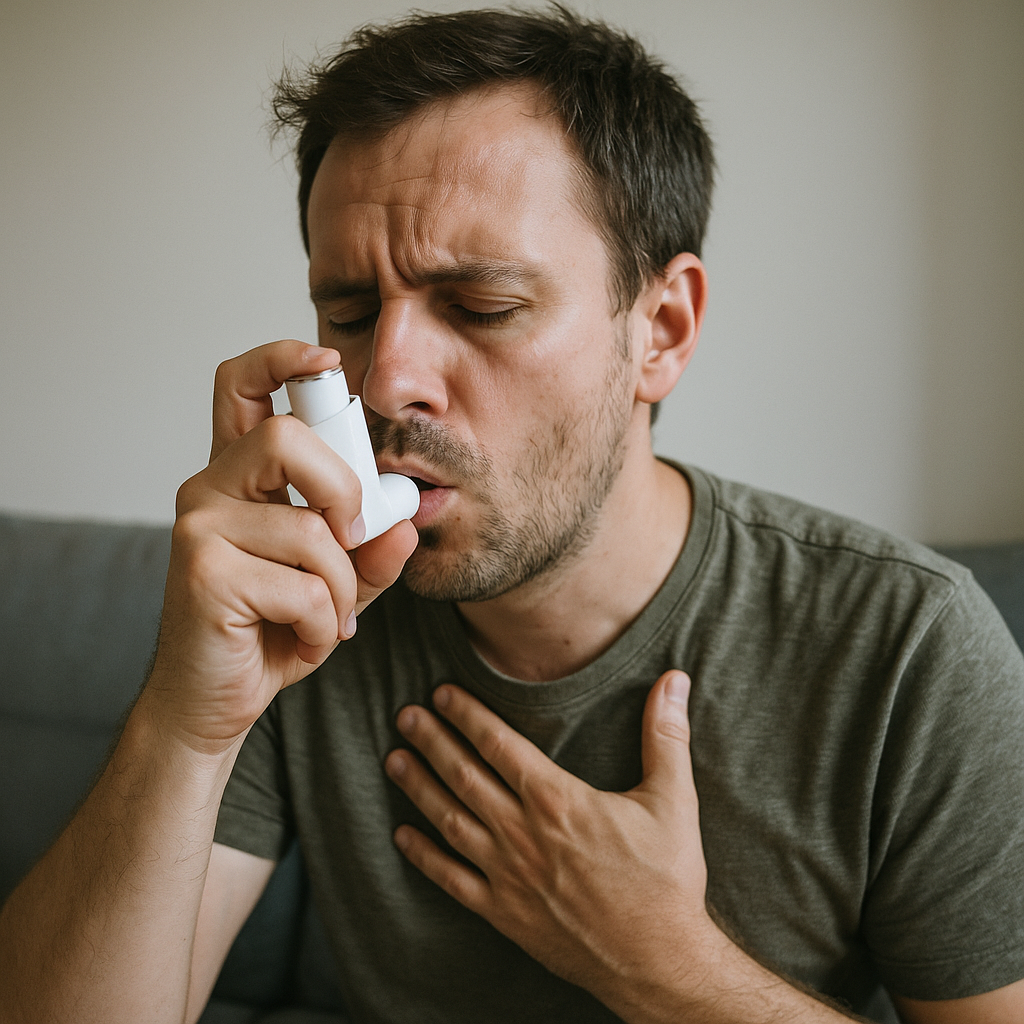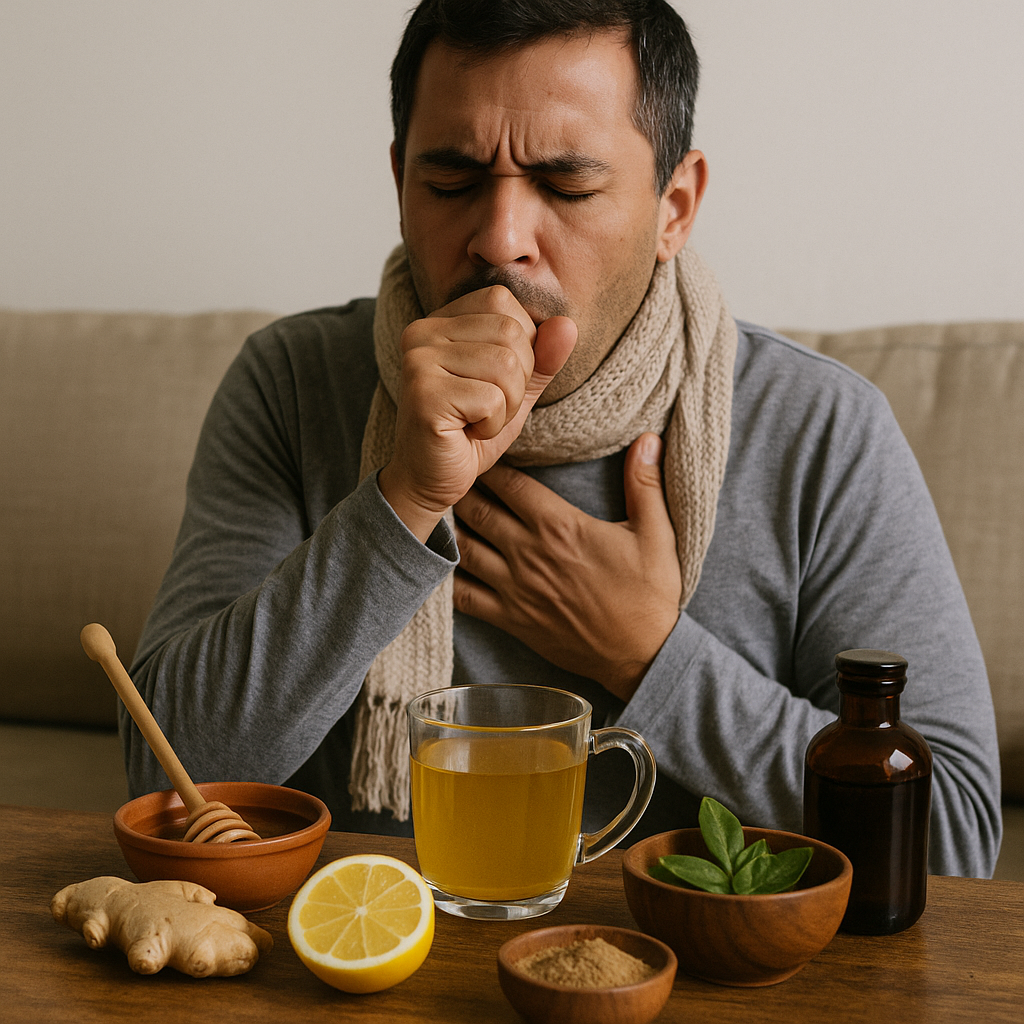Ask Ayurvedic doctor a question and get a consultation online on the problem of your concern in a free or paid mode. More than 2,000 experienced doctors work and wait for your questions on our site and help users to solve their health problems every day.
How to Stop Wheezing Immediately: Natural Relief and Ayurvedic Remedies

Wheezing can strike suddenly — that high-pitched, whistling sound while breathing caused by narrowed airways can be both alarming and uncomfortable. If you’ve ever found yourself frantically searching for how to stop wheezing immediately, you’re not alone. Whether it hits during the day or becomes worse at night, wheezing in the lungs can disrupt your breathing, sleep, and overall well-being. While medications may offer quick relief, many people are turning to natural and Ayurvedic approaches that are gentle, effective, and supportive of long-term lung health.
In this article, we’ll explore how to stop wheezing immediately, how to stop wheezing at night, and what helps with wheezing using natural remedies and Ayurvedic wisdom. From quick techniques you can try at home to ayurvedic home remedies for wheezing, we’ll guide you through solutions that offer fast relief and long-term respiratory balance.
What Is Wheezing and Why It Happens
Wheezing is a symptom, not a disease itself. It occurs when airways become narrowed or inflamed, making it harder for air to pass through. This narrowing creates a whistling or squeaky sound, especially noticeable when exhaling.
The causes of wheezing can vary. Common triggers include:
-
Asthma
-
Allergic reactions
-
Bronchitis or respiratory infections
-
Chronic obstructive pulmonary disease (COPD)
-
Exposure to irritants like smoke or pollution
Understanding what’s causing your wheezing is the first step toward finding lasting relief. If you’re dealing with recurring or severe wheezing, it’s important to consult a healthcare provider to rule out underlying conditions.

Don't wait or self medicate. Start chat with Doctor NOW
How to Stop Wheezing Immediately and At Night
If you’re dealing with sudden wheezing and need fast relief, there are natural and Ayurvedic techniques that can help open up the airways and calm the respiratory system.
Quick Ayurvedic Relief Methods for Sudden Wheezing
Ayurveda offers several immediate-action techniques rooted in balancing the body's doshas (biological energies).
1. Sit upright and practice calm breathing: Elevating your posture can help open the chest and make breathing easier. Try inhaling slowly through your nose and exhaling through pursed lips to regulate airflow.
2. Warm turmeric milk: Turmeric is a natural anti-inflammatory and bronchodilator. Mix ½ teaspoon of turmeric in warm milk (or plant-based milk) and drink it slowly for soothing relief.
3. Steam inhalation with eucalyptus oil: Add a few drops of eucalyptus or peppermint oil to hot water and inhale the steam. This can help loosen mucus and relax airway muscles.
How to Stop Wheezing at Night Using Breath and Positioning
Wheezing tends to worsen at night due to lying flat, which can cause mucus buildup and restricted airflow. Here’s how to reduce nighttime wheezing:
-
Elevate your upper body: Use an extra pillow or wedge to keep your head and chest raised. This can ease pressure on your lungs.
-
Try diaphragmatic breathing: Also known as belly breathing, this technique helps expand lung capacity and promotes relaxation.
-
Use a humidifier: Dry air can irritate the lungs. A humidifier adds moisture and can ease wheezing at night.
What Helps with Wheezing Naturally at Home
Looking for a home remedy for wheezing that actually works? Here are a few tried-and-true methods:
-
Ginger tea: Ginger has anti-inflammatory and bronchodilating properties. Steep fresh ginger in hot water and drink 2–3 times daily.
-
Honey and black pepper: Mix one teaspoon of raw honey with a pinch of black pepper. This natural syrup can help clear mucus and reduce coughing.
-
Avoid cold drinks and allergens: Cold liquids and airborne irritants can trigger wheezing episodes, so be mindful of your environment and diet.

Ayurvedic Treatment and Home Remedies for Wheezing
Ayurveda, the ancient Indian system of natural healing, views wheezing as an imbalance in the Kapha and Vata doshas, often linked to excess mucus, coldness, and dryness in the respiratory tract. The goal of Ayurvedic treatment is to not only address symptoms but to restore balance in the body using herbs, lifestyle practices, and diet. Let’s explore the most effective wheezing treatment Ayurveda has to offer.
Best Ayurvedic Medicine for Wheezing Relief
There are several powerful Ayurvedic formulations known for supporting respiratory health and helping manage wheezing in lungs:
-
Sitopaladi Churna: This classical Ayurvedic powder combines herbs like bamboo, cardamom, cinnamon, and sugar. It’s excellent for relieving congestion, cough, and wheezing. Take with honey for enhanced effect.
-
Talisadi Churna: Another time-tested remedy that supports lung function, Talisadi contains ingredients that ease breathing difficulties and remove excess Kapha.
-
Chyawanprash: A well-known herbal jam packed with Amla (Indian gooseberry), Chyawanprash strengthens immunity and respiratory strength, making it great for those with chronic wheezing or asthma.
-
Vasavaleha: Prepared from the Vasaka plant, this formulation is specifically used for bronchitis, wheezing, and breathlessness. It reduces inflammation and clears the airways.
Always consult with a qualified Ayurvedic practitioner before starting any herbal medicine, especially if you have other medical conditions or take prescription drugs.
Herbal Teas, Oils, and Steam Inhalation Techniques
If you’re looking for ayurvedic home remedies for wheezing that are easy to prepare and use, the following natural methods can be very effective:
1. Herbal teas for wheezing relief:
-
Tulsi (Holy Basil) Tea: Known for its powerful antibacterial and anti-inflammatory effects, tulsi tea can help clear the respiratory tract.
-
Licorice Root Tea: Soothes the throat and reduces inflammation in the bronchial tubes.
-
Trikatu Herbal Blend: A mix of black pepper, long pepper, and ginger, Trikatu stimulates digestion and helps clear mucus from the lungs.
2. Oil massage and chest application:
-
Mix a few drops of mustard oil with camphor, warm slightly, and gently rub over the chest and upper back. This can loosen phlegm and ease breathing.
-
Sesame oil infused with a few drops of eucalyptus or peppermint oil can also be used for chest massage and steam inhalation.
3. Steam inhalation with Ayurvedic oils:
Inhaling steam infused with ajwain (carom seeds) or a few drops of Vacha oil (Calamus) can open nasal passages and soothe the lungs.
Lifestyle and Diet Tips to Prevent Wheezing Episodes
Preventing wheezing involves more than just treating it when it happens. A few lifestyle changes can make a big difference in your respiratory health:
-
Avoid cold, heavy, and dairy-rich foods, which increase Kapha and mucus production.
-
Eat warm, cooked foods with spices like turmeric, cumin, and ginger to keep your digestion and immunity strong.
-
Practice pranayama (breathing exercises) daily, especially Anulom Vilom and Bhramari, which strengthen lung capacity and reduce anxiety-related wheezing.
-
Stay hydrated and avoid sudden exposure to cold or damp environments.
-
Quit smoking and reduce exposure to air pollutants or allergens wherever possible.
By adopting these Ayurvedic principles and home remedies, many people find lasting relief and improved quality of life without relying entirely on pharmaceuticals.
FAQs
What are the three main causes of wheezing?
The three most common causes of wheezing are:
-
Asthma – A chronic condition that inflames and narrows the airways, often triggered by allergens or physical activity.
-
Bronchitis or Respiratory Infections – Viral or bacterial infections can lead to inflamed bronchial tubes and excess mucus, causing wheezing.
-
Chronic Obstructive Pulmonary Disease (COPD) – A progressive disease typically caused by long-term exposure to irritants such as cigarette smoke, leading to breathing difficulty and wheezing.
Other possible causes include allergic reactions, heart failure, or even certain medications. It’s important to consult a healthcare provider for persistent symptoms.
What is the best position to sleep in to clear your lungs?
The best sleeping position to help clear your lungs and reduce wheezing is:
-
Propped-up or semi-upright: Use pillows to elevate your upper body, especially your chest and head. This position reduces the pressure on your lungs and allows for easier breathing.
-
Lying on your side (especially left side): This can improve drainage and airflow.
-
Avoid lying flat on your back, as it can increase mucus buildup and worsen wheezing at night.
For added benefit, use a humidifier in the room to keep airways moist and consider adding essential oils like eucalyptus or peppermint for therapeutic effects.
By understanding the causes of wheezing and embracing gentle, Ayurvedic home remedies for wheezing, you can breathe easier—day or night. From how to stop wheezing immediately to finding the best ayurvedic medicine for wheezing, this guide offers a natural path to respiratory relief that is accessible, effective, and holistic.

